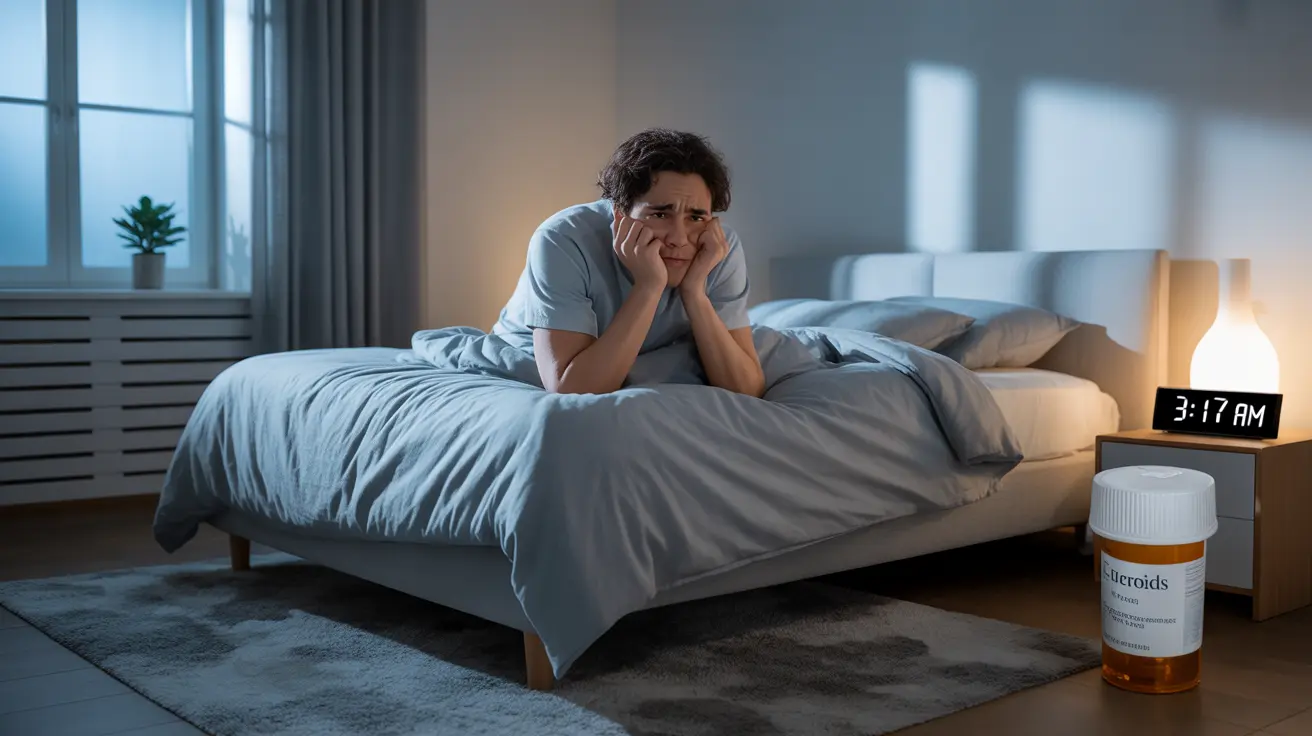If you've ever taken steroids for medical treatment, you might have experienced an unwanted side effect: difficulty sleeping. Whether prescribed corticosteroids for inflammation or using anabolic steroids for muscle building, these medications can significantly impact your sleep patterns and quality of rest.
Understanding the relationship between steroids and sleep disruption is crucial for managing their effects and maintaining healthy sleep habits while on steroid therapy. Let's explore why steroids can keep you awake and what you can do about it.
How Steroids Affect Your Sleep Cycle
Steroids can interfere with your natural sleep-wake cycle in several ways. These medications influence various hormones and chemical processes in your body that regulate sleep, alertness, and energy levels.
Impact on Natural Cortisol Production
Your body normally produces cortisol (a natural steroid hormone) in a daily rhythm, with levels highest in the morning and lowest at night. When you take synthetic steroids, especially corticosteroids like prednisone, they can disrupt this natural pattern, potentially causing heightened alertness when you should be winding down for sleep.
Effects on Energy Levels and Mood
Steroids often increase energy levels and can cause mood changes, including feelings of excitement or anxiety. These effects can make it difficult to relax and fall asleep, even when you're physically tired.
Types of Steroids That Affect Sleep
Corticosteroids
Medications like prednisone, dexamethasone, and hydrocortisone are commonly prescribed for conditions like asthma, arthritis, and inflammatory diseases. These steroids are known to cause sleep disturbances, particularly when taken in higher doses or later in the day.
Anabolic Steroids
Used for muscle building and certain medical conditions, anabolic steroids can also affect sleep quality by altering hormone levels and increasing physical energy and mental alertness.
Managing Sleep While Taking Steroids
Timing Your Medication
When possible, take steroid medications early in the day to minimize their impact on nighttime sleep. Always follow your healthcare provider's instructions regarding timing and dosage.
Creating a Sleep-Friendly Environment
- Establish a consistent bedtime routine and optimize your sleep environment by:
- Keeping your bedroom cool, dark, and quiet
- Avoiding screens before bedtime
- Using relaxation techniques like deep breathing or meditation
- Maintaining a regular sleep schedule
Lifestyle Adjustments
- Make conscious choices throughout the day to support better sleep:
- Avoid caffeine in the afternoon and evening
- Exercise regularly, but not too close to bedtime
- Practice stress management techniques
- Consider using blackout curtains or white noise machines
Frequently Asked Questions
- Can steroids cause insomnia or keep you awake at night?
Yes, steroids can cause insomnia and sleep disturbances by disrupting your natural sleep-wake cycle and increasing alertness and energy levels.
- Why do corticosteroids like prednisone affect my sleep and cause restlessness?
Corticosteroids affect sleep by interfering with your body's natural cortisol production rhythm and can increase energy levels and anxiety, making it harder to fall asleep.
- How do anabolic steroids disrupt the natural sleep-wake cycle and sleep quality?
Anabolic steroids can alter hormone levels, increase physical energy, and affect mental alertness, all of which can impact your natural sleep patterns and quality of rest.
- What can I do to reduce steroid-induced sleep disturbances or insomnia?
Take medications early in the day, maintain good sleep hygiene, create a relaxing bedtime routine, and optimize your sleep environment. Consult your healthcare provider about adjusting timing or dosage if sleep problems persist.
- Are certain types or doses of steroids more likely to cause sleep problems?
Higher doses of steroids typically cause more pronounced sleep disturbances, and corticosteroids like prednisone are particularly known for affecting sleep. The timing of doses also plays a significant role in their impact on sleep.




